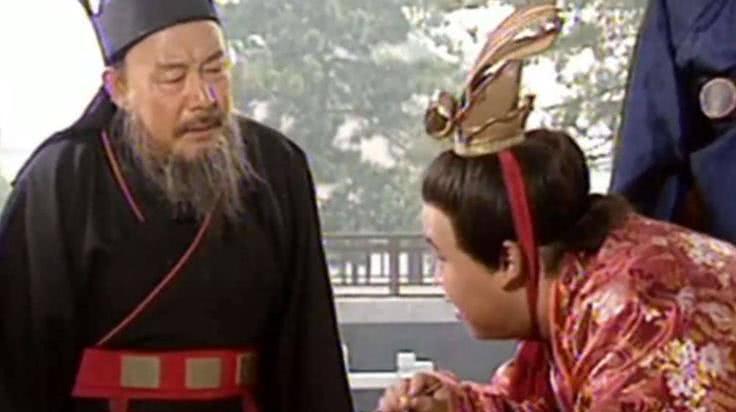In history, liu chan was praised and deprecated, and there was hatred for dragging Zhuge and Jiang Wei to two generations of famous courtiers, and in the later period, he reused the villain Huang Hao. Le Bu Shu has become a joke, and being laughed at by people is more than 1,000 years. However, Liu Chan was hacked a little miserably, and the record was more of an evaluation of "humility, economic development, and rest with the people." Without The support of Liu Chan, Zhuge and Jiang Wei would have sent troops frequently, and the Northern Expedition would have dragged down the Shu economy. As for "Happy not thinking about Shu", if you understand the development of the whole thing, you will find that Liu Chan did the right thing.

The Shu state had been destroyed, and Sima captured Liu Chan and pretended to invite him to a banquet. During this period, Sima found an excuse to leave, and the minister of the Shu state would brainlessly propose that "the lord proposed to the State of Wei to return to Shu land"! Regardless of whether Sima was eavesdropping outside or not, whether or not the chancellor was sent to test him, Liu Chan's answer was the most correct. It would be foolish to bet on Wei Guo's "maybe brain convulsions and really agree" in case of probability.
Liu Chan Mingzhe protected himself, but this news was revealed, which undoubtedly chilled the hearts of the rebels and righteous soldiers who did not know the truth and were ready to serve the Liu family. In the end, Liu Chan stayed in the State of Wei for 8 years and died in 271 AD at the age of 64! Before his death, Liu Chan saw a joke that Sima Yan seized power from Cao Wei and established the Western Jin Dynasty. Wei and Shu fought to the death, but they did not expect to eventually cheapen the Sima family.
However, the story behind it is more and more bizarre, the Western Jin Dynasty was destroyed less than 50 years after its establishment, Liu Chan's sons all died, and the descendants of the Xiongnu were posthumously honored as Emperor Xiaohuai.
In 280 AD, after the Western Jin Dynasty destroyed Wu, it completed a brief unification. However, there were many aristocrats and scholars within the Western Jin Dynasty, but the political power was always difficult to integrate, which eventually led to the Rebellion of the Eight Kings. The Rebellion of the Eight Kings once again consumed a large number of Han Chinese people, and at the same time caused the collapse of the Western Jin Dynasty, and the various ethnic groups took advantage of the situation to raise troops. From 307 to 313 AD, the "Yongjia Rebellion" swept through the Western Jin Dynasty. In 316, Liu Yao invaded Chang'an and captured Emperor Huan of Jin, and the Western Jin Dynasty was completely destroyed.
Liu Chan had a total of 7 sons in his lifetime, the eldest son Liu Xuan died at the hands of Zhong Hui's troops when the Shu state fell, and died at the age of 15; The fifth son, Liu Chen, was expelled from the palace by Liu Chan for opposing Zhou's surrender to Wei, and committed suicide after the fall of the Shu state. Extrapolating from the age, it should be only about 10 years old! Liu Chan's seventh son, this is the most fierce.
The other 5 sons, Liu Yao, Liu Chun, Liu Zhan, Liu Ke, and Liu Xuan, all died in the Yongjia Rebellion.
After all the direct heirs died, Liu Chan's spiritual throne should have been unsupported, but he did not expect that after Liu Yuan's uprising, he established the Han Zhao regime and posthumously honored Liu Chan as The Emperor of Xiaohuai. Although Liu Yuan was a Han surname, he was a descendant of the Xiongnu leader Mao Dun Shan Yu, the grandson of the Southern Xiongnu Shan Yu Yu Yu, and the biological son of Liu Bao.
Although Liu Yuan has Xiongnu blood, he is not unexpectedly arbitrary, and after the founding of the country, "using sages to advise, being frugal and industrious", it can also be regarded as quite accomplished.
...................................................................